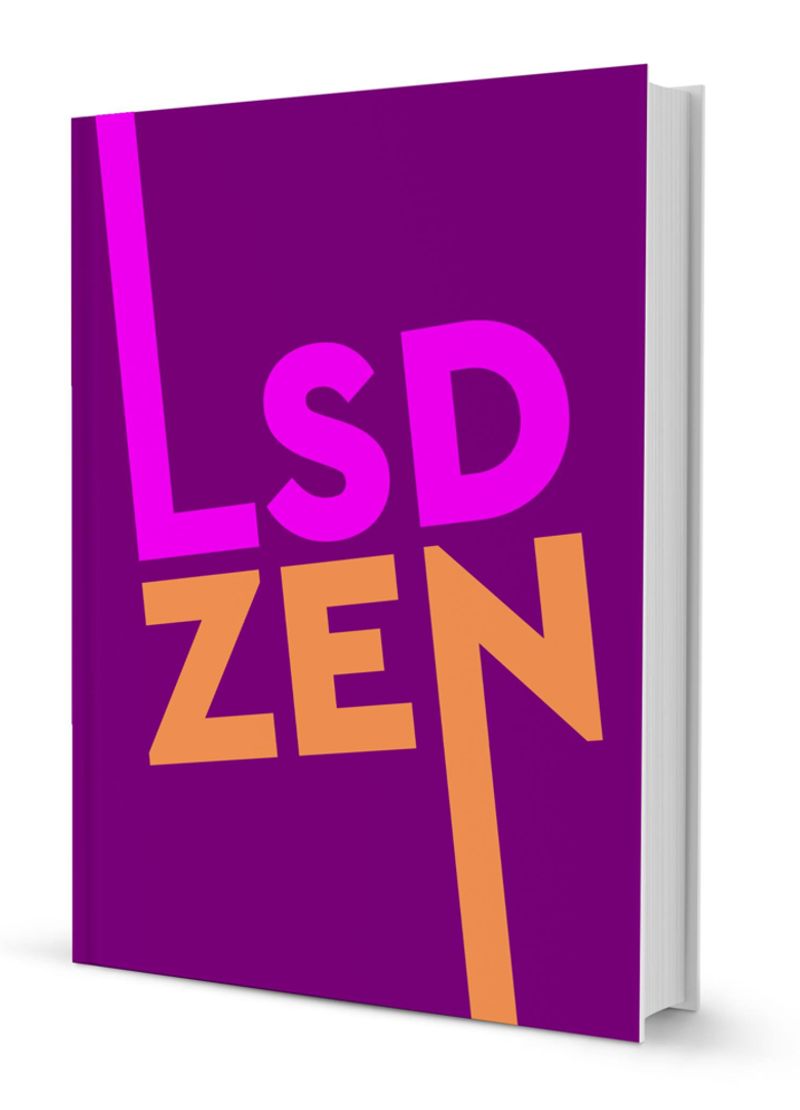An Open Letter to Mr. Joe K. Adams
By Lynn Sagan, 1964

As a "socially unacceptable truth-teller" in all subculture normalizations except (as I recently discovered to my great joy) the eclectic and tolerant one in and around Harvard Square, I responded to
your article in the
Psychedelic Review with the kind of zeal Hernan Cortes must have felt after discovering that the Mayan girl, Malinche, could talk to the Tarascan natives for him.
Our university classrooms are filled with your "compartmentalists"; camouflaged with pedantic verbiage and fancy formality. I have long been their antagonist, and have learned as well as suffered. As reference, I cite my own experience with the compantmentalist designated by the venerable titles "biochemist" and "biophysicist", as well as with LSD-25. Are those credentials enough to comment on your hypothesis?
I really do agree with your contention that the drug attacks defense mechanisms built up carefully to conceal the truth of our direct sensory perceptions. One would a priori imagine, however, that a drug which forced us to see the world as it is would be welcomed. Why, then, is the entire "consciousness-expanding" drug movement confronted with enormous hostility? And why do we tolerate and perpetuate systematic hypocrisy in our culture?
No matter whether one invokes a mystical, psychological or pseudo-biological definition for the phenomenon of consciousness, it is clear that simple, known, organic compounds alter it. Orgies, black masses, fasting, fevers, ritual dancing, and fraternity initiations, equally have changed the state of man's consciousness in the past, but these are far less amenable to isolation and quantification than, e.g., LSD and psilocybin.
The excitement here arises from our present position : we are probably on the threshold of a physical basis of consciousness. Perhaps our times are analogous to those at the beginning of the century, which culminated in today's clear concept of the physical basis of heredity.
The self-replicating DNA molecule, containing within its sequence of nucleotide subunits the blueprint for the developing organism, is also the target for inherited mutational changes. These mutations provide the source of variability for evolution, of course.
It is, however, only in the context of the raw data of evolution — the Devonian fishes and the Jurrasic reptiles, Darwin's finches and the adaptive homologies in the mammalian marsupials of Australia — that the significance of DNA biology can be comprehended.
Similarly, the increasing collection of both qualitative experiential data of psychology in general, and drug-induced behavioral alterations in particular, are requisite for a general theory of mental processes. The fact that the potent hallucinogens — psilocybin, mescaline, LSD, harmine and tryptamine — are all structurally-related indole derivatives (and related to the intermediates in the metabolism of the common amino acid, tryptophane) already suggests a common mode of action.
Mescaline is related to adrenaline, a known neurosecretory hormone; and caffeine is a purine similar to the nitrogenous bases in DNA (the genetic material). If these facts do not, at best, point to possible physiological mechanisms, they at least attest to the knowability of consciousness, psychosis and mystical experience. The chemistry eloquently testifies to the amenability of man's soul to his own researches.
The most fundamental evolutionary principle is: selection by the environment of those genotypes most fit for survival. It follows that the particular hormonal and biochemical composition present in modern man represents that which maximized the probability of survival of our ancestors. Both our nervous system and the chemistry which modifies it determine our responses to our complicated surroundings. Both, therefore, have been selected for, over the long haul of evolution.
It is likely that many factors would have been involved in this maximization: the organism would have to have a fairly accurate perception of the external world in order to act. But such perception would have to be developed within the framework of the evolutionary potential of ancestral forms. For example, when bi-pedal walking was selected for, it had to involve the sacrifice of the grasping ability found in other primate feet.
In the same way, it is likely that the enhanced perception which can be experimentally induced by hallucinogens, although possible within the limits of our evolutionary potential, was selected against because, e.g., it involved sacrifice of motor coordination and also precluded our ability to narrow our attention only to those stimuli in the enviroment relevant to food gathering, procreation, etc.
Empathy often impedes action. It is easy to see how a full consciousness of the multitudes of stimuli available at all times in our environs interferes with and confuses the direct goals of survival. Some modification of individual consciousness must be involved in the coordination of individual actions into a group, too. And man, of course, can only survive in groups.
In addition, then, to accurate individual perceptions of the external world, man must contain within his nervous system the profound tolerance for ambiguity between what is directly sensed and what is claimed to be "true" by others.
If one could not perpetuate mystiques such as "Communists are evil and out to destroy our American society," or, "Our actions are accountable to an invisible God," for example, thousands of people would not be mobilizable into actions which per se are atrocious and unthinkable.
In some sense, therefore, it is not clear that "hypocrisy is an unstable social state ;" it may be necessary for continued, unquestioning group action. However, as the facts of lie-detection devices and the therapeutic value of psychoanalysis and the Catholic confessional corroborate, the individual pays the physically measurable price of tension and neurosis for this hypocrisy.
The exposure of this hypocrisy is followed by relief.
To paraphase W. La Barre, the difference between psychosis and culture lies only in the number of adherents. The tragedy in forcing masses of people to accept the psychosis of our culture is evidenced in the increasing numbers of severely conflicted neurotics it produces.
The
a-priori assumption of the normalcy of our society shared by many psychologists, et al., only leads to measures which adjust the individual to perpetual conflict. In some cases the conflict can only be eliminated by the recognition of the hypocrisies of our culture. To multitudes of social workers, marriage counselors, school psychologists, and university professors, this admission is not a tolerable solution.
As you say, however, "The greatly increased exposure to facts and ideas, through mass media, travel in foreign countries, etc., can greatly increase the frequency of psychotic episodes, according to the present theory." But there is no doubt that these things, too, provide a body of evidence that an inherently consistent real world can be perceived by man.
Sincerely,
Lynn Sagan
(1964)
Download Our Free Psychedelic Healing Books







